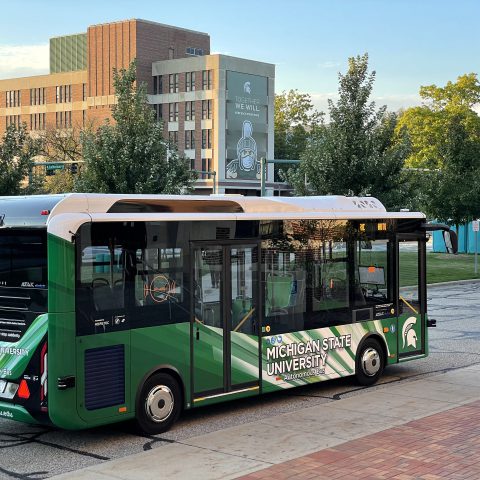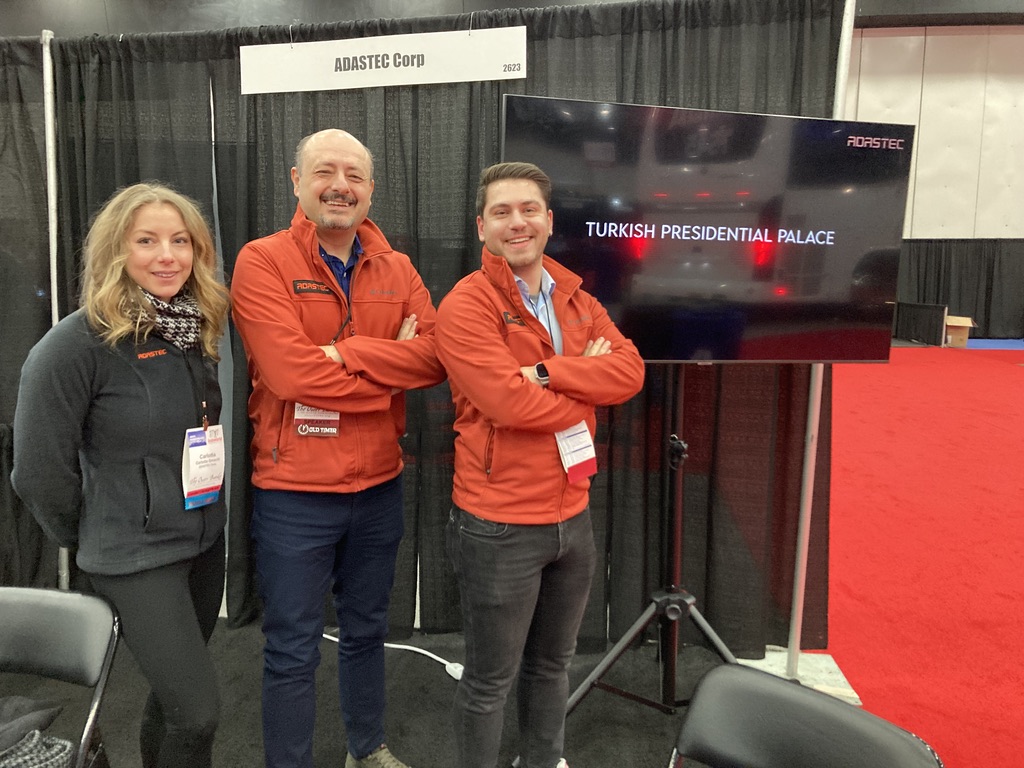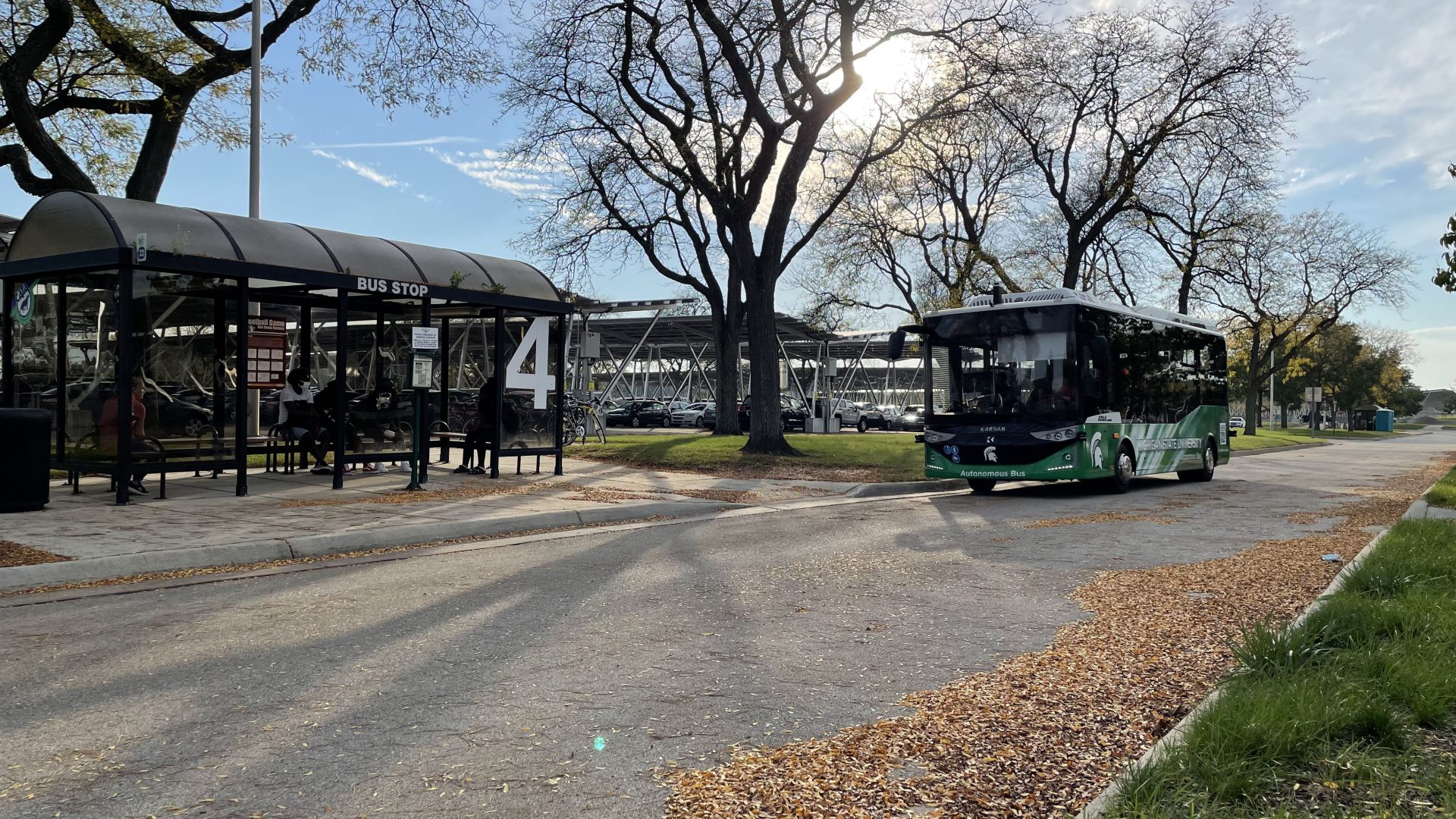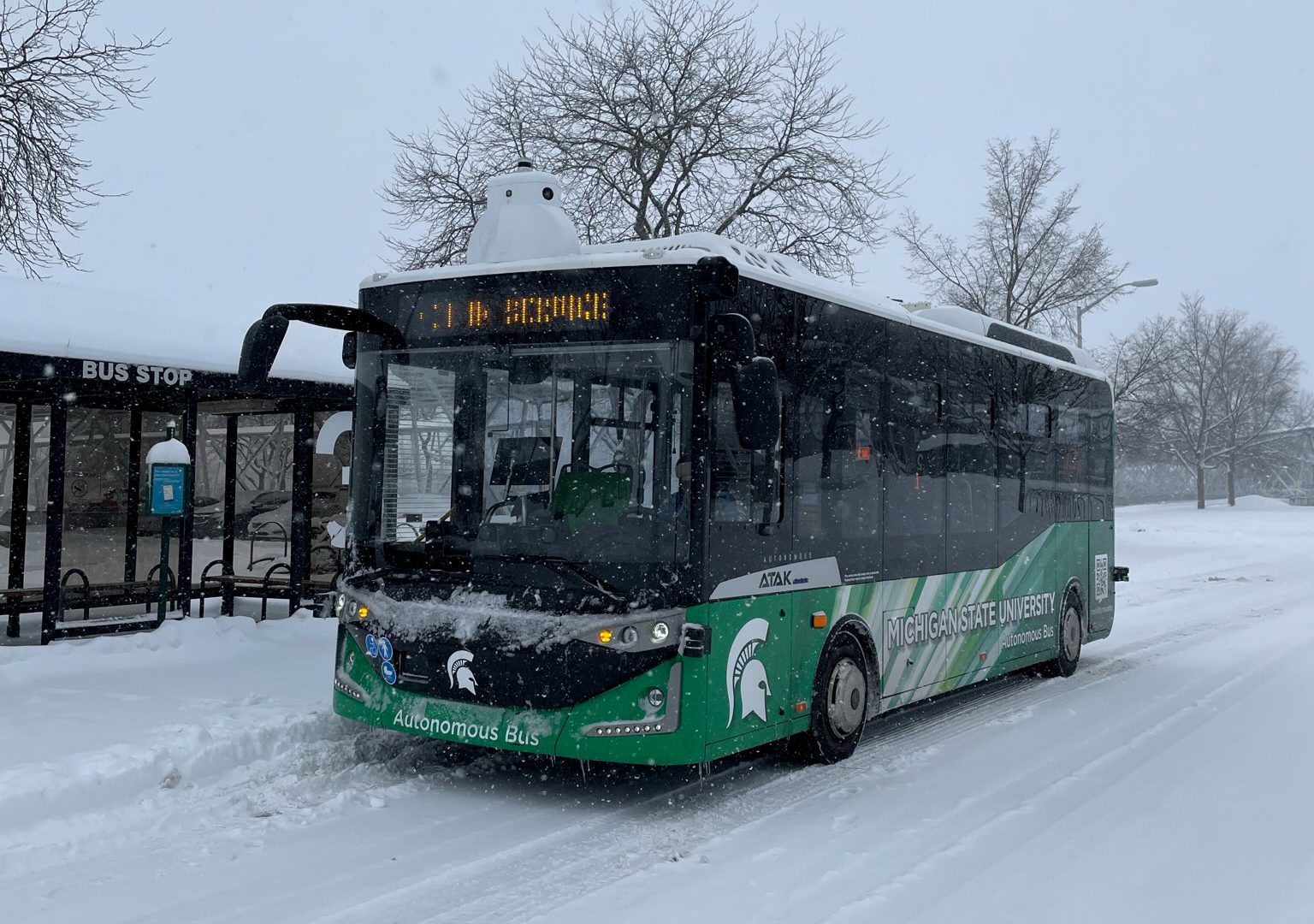ADASTEC, the focus on the automation of transit buses. Our interview with CEO Ali Ufuk Peker
ADASTEC is the company behind the Karsan Autonomous e-Atak, the driverless 8-meter bus by Karsan. They focus on automation in the bus business. We met the CEO Ali Ufuk Peker at Busworld North America in Detroit in February. In this interview he outlines background, strategies and business model of the company. Unlike other companies that […]

ADASTEC is the company behind the Karsan Autonomous e-Atak, the driverless 8-meter bus by Karsan. They focus on automation in the bus business. We met the CEO Ali Ufuk Peker at Busworld North America in Detroit in February. In this interview he outlines background, strategies and business model of the company.
Unlike other companies that focus on retrofits or custom-created vehicles, we partner with OEM’s integrate our sensor stack and software at the manufacturing site to create a serially produced product that is produced and tested to meet the expectations of the market.
Ali Ufuk Peker, CEO, ADASTEC

Ali Ufuk Peker, ADASTEC: one market, transit buses
Can you tell me about your company and how it started?
ADASTEC was founded in 2018 in California, but we recently moved our HQ to Ann Arbor, Michigan. ADASTEC currently has 75 employees, with around 60 of them focused on engineering. We also have a robust board, an executive leadership team, product managers, and global sales teams with engineering backgrounds. ADASTEC also only focuses on the automation of transit buses, and we are not looking to expand into any other markets, such as robot taxis, shuttles, etc. We have a research facility in Istanbul and recently opened two branch offices in the Netherlands and Sweden.
ADASTEC looks like a Turkish-American company…
ADASTEC is a U.S. company with Turkish founders. The company’s headquarters is in Ann Arbor, MI, and its international offices are in Turkey, Sweden, and the Netherlands, all of which are 100% owned by the U.S. entity.
What does your company focus on?
We focus on buses and bringing automated solutions to the market. Unlike other companies that focus on retrofits or custom-created vehicles, we partner with OEM’s integrate our sensor stack and software at the manufacturing site to create a serially produced product that is produced and tested to meet the expectations of the market.
In total, ADASTEC, together with Karsan, produced around 10 buses, seven of which are in operation. Three of them are used for piloting and demoing, one is in Germany. Our expectation is to be able to deploy between 10 and 20 more buses with Karsan by the end of this year.
Ali Ufuk Peker, CEO, ADASTEC

The return on investment of driverless buses
What do you think is the future of automated buses and how do you think they can be successful?
We believe that automated and electric buses can enhance public transit as a whole and increase its usage. This can lead to more shared mobility, less carbon emissions, and as a result, higher sustainability which is something many cities are targeting. We also believe that the return on investment for automated buses is obvious.
May you be more specific on that? How do you plan to make your automated buses profitable?
As mentioned, we believe there’s a clear return on investment in the bus market. The operational costs are very high, so if we can lower those costs with automation and electrification, we can create revenue for the software and the technology – It’s an equation. In ADASTEC’s case, we will break even at around 200 buses.
It’s a challenging market. Others OEMs in the driverless vehicles segment are investing lots of money, and some are experiencing difficulties (see Navya)…
ADASTEC does not have large spending and is not expecting to sell millions. If you spend billions, it’ll be very difficult to get it back. But if you can handle between 50 and 100 million and end up with a product that saves money for bus fleets, then it’s a workable use case. This is exactly what ADASTEC aims to do – we focus on a specific area and share some of the financial burdens with the OEMs. By doing so, we can lower the amount of investment required.
What distinguishes ADASTEC’s approach to that of other companies in the industry?
We put a lot of effort into customer service and support. We generally don’t allow the operation to stop if there’s a problem. We solve all problems overnight so operations can start again in the morning. One of the reasons some of the other pilots are not successful is that service tends to get interrupted due to mechanical issues, which makes people think it is not a feasible solution that can be applied in the real world.

Autonomous driving, a matter (also) of regulations
What challenges do you face in terms of regulations and how do you see them changing in the future?
Currently, the regulations are still unclear, especially in the US. However, the European Union has a clear vision for automated buses, and many of their standards used in the automotive industry are applicable. Although there are still questions about insurance and traffic rules, we believe it will be easier to regulate automated buses than cars because of their limited operating areas ADASTEC has already deployed projects in various countries, all with unique permissions, but we hope to see more standardization in the future.
If you spend billions, it’ll be very difficult to get it back. But if you can handle between 50 and 100 million and end up with a product that saves money for bus fleets, then it’s a workable use case. This is exactly what ADASTEC aims to do – we focus on a specific area and share some of the financial burdens with the OEMs. By doing so, we can lower the amount of investment required.
Ali Ufuk Peker, CEO, ADASTEC
Which companies are you working with at the moment?
At the moment, we are only working with Karsan.
Can you tell us about the current status of your bus automation projects?
We currently have several projects running with Karsan. One bus is running under special permission at Michigan State University, another bus is deployed in France, and another one is in Romania. We also have two buses operating in Turkey. In total, ADASTEC, together with Karsan, produced around 10 buses, seven of which are in operation. Three of them are used for piloting and demoing, one is in Germany. Our expectation is to be able to deploy between 10 and 20 more buses with Karsan by the end of this year.
Are there any specific market segments that you are targeting with these buses?
The difficulty with the bus segment is that it’s so fragmented. Every country has its own specific requirements and style, so it’s challenging to target specific markets.







